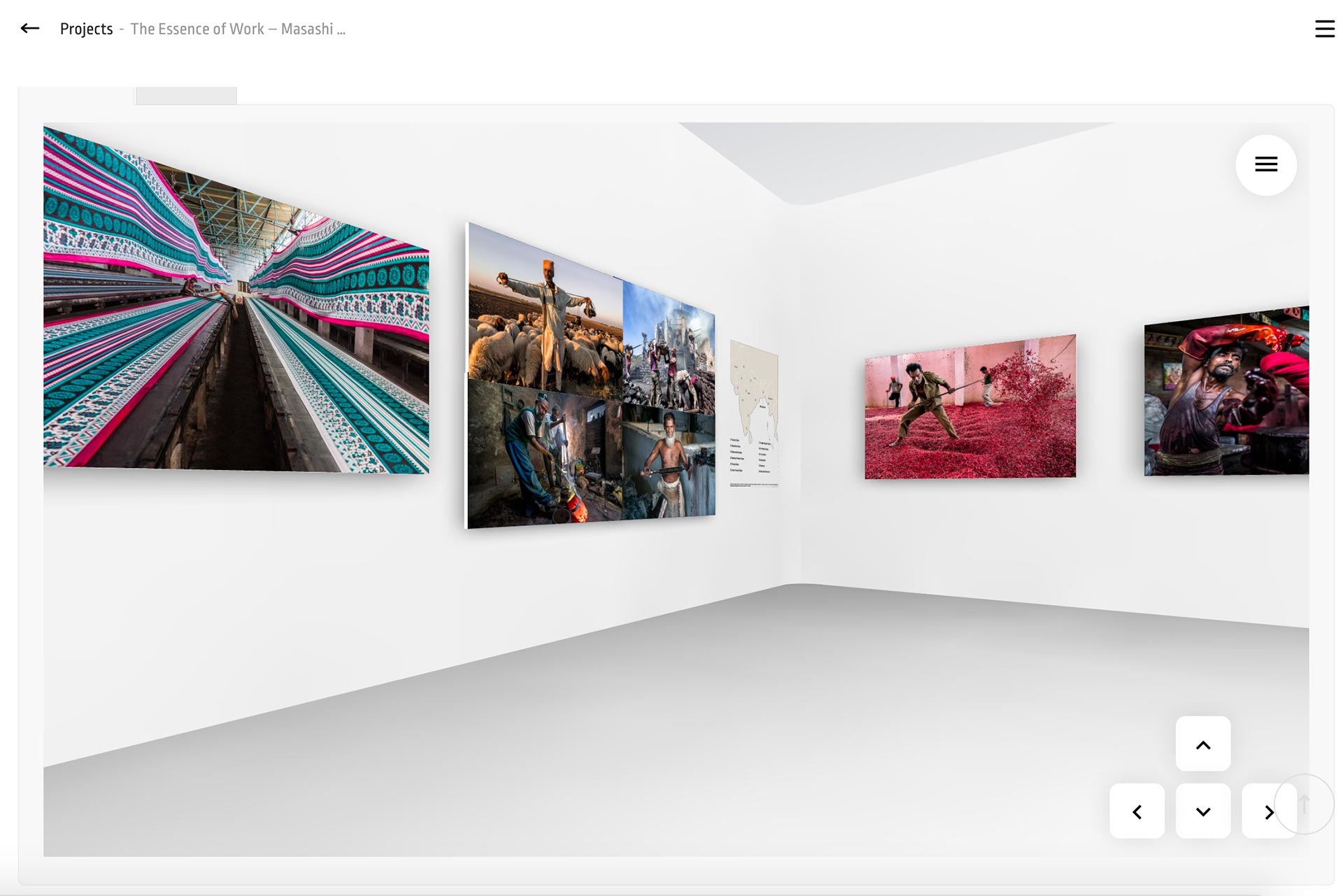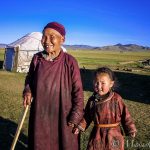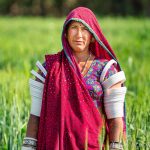4月にニューヨークで開催する予定だった写真展は、新型コロナウイルスの影響により中止になりましたが、その展示予定の作品を使ったバーチャル写真展「The Essence of Work」が11月9日から開催されます。これは写真編集研究所と日経ナショナルジオグラフィック社との共同開催です。
このバーチャル写真展は写真をただ並べただけではなく、実際に写真展会場にいるかのように3D仮想空間を自由に動き回れるので、とても楽しいです。サイトは英語のみですが、操作は直感的で簡単です。ぜひお試し下さい。
ステイトメント(日本語)
現地でバイクを借りて、行き先を決めず、地図さえ持たずに、町から町へと移動する。そんな気まぐれな旅を続けてきた。準備は最小限にして、あとは偶然に身を任せ、その偶然性がもたらす出会いを心から楽しんできた。訪れたのはアジアを中心に39ヶ国。インドだけでも7周し、10万キロ以上の道のりを走り続けてきた。
そんな旅の中で、僕がもっとも強く惹かれたのが、働く人々の姿だった。農家、漁師、鍛冶屋、レンガ工場の労働者。ほとんどが特別な技術を必要とする伝統工芸ではなく、誰からも注目されていない単純作業や肉体労働だったが、その姿は美しかった。汗を流して働く人々には、人間が持つ根源的な生命力が宿っていた。人にはそれぞれ違った役割があり、それをできる限り誠実にやり続けるのが、働くことの本質なのだと、働く背中は語っていた。
もともと血縁や村落共同体の力が強いインドでは、多くの人が「親の職業を子が受け継ぐ」という伝統にしたがって暮らしてきた。しかし、急速な経済発展とグローバル化の進展にともなって、こうした伝統のあり方も大きく変化している。かつて必要とされていた仕事が不要なものになり、まったく新しい仕事が次々と生み出されているのだ。実際、2016年に僕が撮影した染色工場のひとつは、翌年に再訪したときには操業をやめ、従業員は全員解雇されて、誰もいない廃墟になっていた。
何世代にも渡って受け継がれてきた仕事が、ひとつまたひとつとその役目を終えていく。その流れは誰にも止めることができないし、今後もさらに加速していくだろう。その仕事が10年後も今と同じように残っている保証はない。だからこそ、僕は働く人々を撮っている。
そう遠くない将来、こうした仕事があったことさえ忘れ去られてしまう前に、人々が流した汗のきらめきや、真剣な眼差しや、無駄のない肉体美を、写真に記録し、世界に伝えたい。「平凡なものとして見過ごされている仕事がこの世界を根底から支えている」という事実を、多くの人に知ってもらいたい。それが写真家として僕が果たすべき役割だと考えている。
Statement
I rent a motorcycle locally riding from town to town without a fixed destination or even a map. There is no telling where I will go next. With minimum preparation, I let myself be guided by chance, and I really enjoy the encounters that result from it. So far, I have visited thirty nine countries, mostly in Asia. I have been to India alone seven times, exploring all corners of the country. To date, I have ridden well over 70,000 miles.
During the course of these travels, I have been most drawn to working people such as farmers, fishermen, blacksmiths and brick factory workers. Their kind of work does not require the special skills needed by a traditional craftsman. Instead, it is work that is mostly simple and physical, and often taken for granted. But I find these people beautiful. Working in the sweat of their brow, they have a fundamental human vitality—as though telling us that people have different roles in life, and that the essential meaning of “work” is to engage in those roles and carry them out with sincere good will.
In India, where social norms are traditionally based on kinship and village communities, children used to inherit the occupations of their parents. However, with rapid economic growth and globalization, this way of life is undergoing major transformations. Occupations once in demand are no longer needed, while new jobs are being created one after the other. For example, one of the dye factories I photographed in 2016 has since ceased operation and all its employees have been dismissed. It was a complete ruin when I revisited it the following year.
One by one, the workers whose occupations have been handed down through generations are losing their roles in society. It is an accelerating trend that no one can alter. There is no guarantee that a currently existent job will be around in ten years. Here is all the more reason for me to photograph these working people.
In the not-so-distant future, we will forget that such jobs even existed. Before that happens, I want to foster awareness of these workers, to document in my photographs their labor and sweat, the earnest look in their eyes, as well as the grace of their bodies. I also hope to make the public more appreciative that work which is often overlooked because of its humdrum character makes an essential contribution to the world, without which it would not exist as it does. Bringing it to the fore is what I consider my role as a photographer to be.



